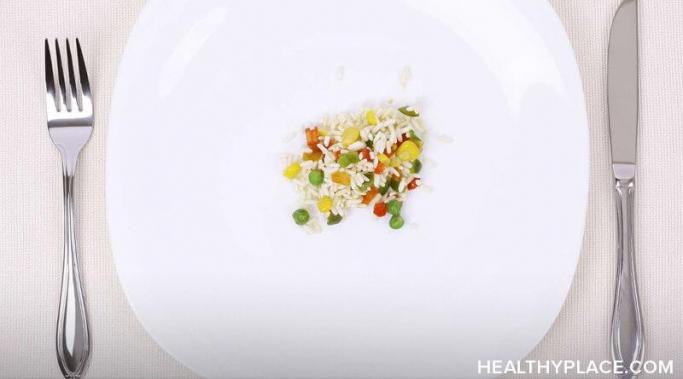If you have been following the news lately, then chances are, you know about the global supply chain issues projected to loom over this holiday season. And while the United States Department of Agriculture (USDA) confirms there is no current food shortage in the United States, grocery stores and supermarkets across the nation could experience low inventory of certain items on their shelves. So, what does this mean if you have a complicated or difficult relationship with food to begin with? Be conscious of the possibility that food shortage anxieties can fuel eating disorder behaviors.
Surviving ED
This article is not meant to be a universal claim about eating disorders, as I can only speak from my own observations and experiences. But in many cases, I believe that eating disorder behaviors manifest on the surface to mask a fear of rejection deep within.
The way I choose to interact with my body has an impact on my eating disorder recovery. So, it's crucial to make sure that I practice mindful interactions with my body, rather than using harmful words or behaviors to abuse my body and interrupt the healing process.
I will be the first person to confess that physical rest does not come easily to me. In fact, one of the most persuasive lies from my eating disorder, which I'm still working to dismantle, is that I am not allowed to rest. For years, I assumed that a body in constant, relentless motion would equal strength, power, and control, whereas a body at rest would signal weakness. However, as recently as this past weekend, I had no choice but to pause and remember that rest is an essential part of eating disorder recovery—and health overall.
Around this time last year, I was in serious need of a social media detox because doom-scrolling on Facebook and Instagram had monopolized most of my free time and sabotaged my mental health. This habit morphed me into someone who was constantly anxious, irritable, tense, and frantic. I could not seem to redirect my thoughts from the vitriol that spewed in the comment sections on my newsfeed, so to regain some measure of control, I turned to a familiar distraction: my eating disorder.
This letter is to you, the person who wants to quit eating disorder recovery.
There will often come a time in the healing process when you feel an impulse to share what you've learned with someone else and invest in their eating disorder (ED) recovery as well. I have experienced that urge in my own personal journey, and I've also watched it manifest in other ED recovery warriors I know.
Over the past few weeks, Simone Biles taught me so much about healing. I don't know Biles personally, of course, but I know resilience when I see it. At 24 years old, Biles has suffered the trauma of sexual abuse, the pain of numerous athletic injuries, the stress of training in a pandemic, the systemic offenses of the U.S. gymnastics culture, and the burden of expectations from an audience who assumes her performance will not falter.
In my own experience, boundaries are frequently talked about in the mental health community as pillars of self-care, but all too often, it's unclear how to create and reinforce those healthy boundaries. I define boundaries as an instruction manual for which behavioral dynamics, communication habits, and interpersonal treatment I either will or won't tolerate in my relationships—and life overall.
In just a couple of days, I will turn 30. To those who have spent more time on this earth than I have, this might not seem like such an extraordinary milestone, but 10 years ago, I never imagined that I would be alive to see my 20th birthday—let alone my 30th. That version of me felt hopelessly convicted to a life sentence of anorexia.









